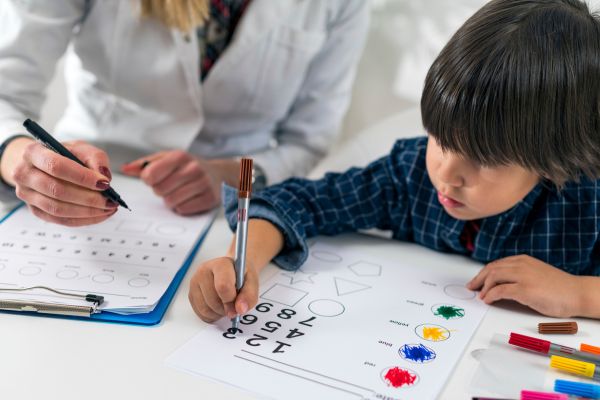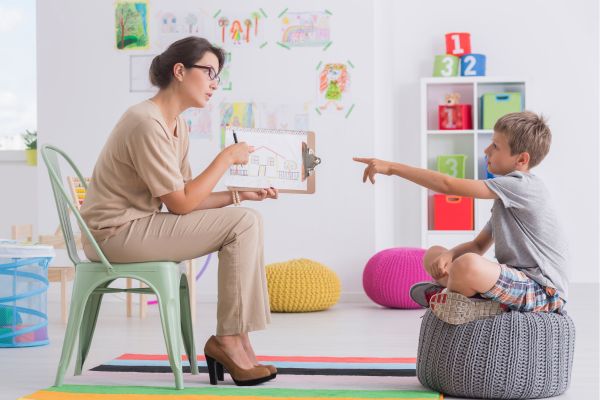Autism Spectrum Disorders
Types of Autism-Related Challenges

Social Communication
Differences in back-and-forth conversation, understanding social cues, or making eye contact.

Flexibility and Adaptability
Challenges with transitions, changes in routine, or unexpected events.

Restricted or Repetitive Behaviors
Preference for routines, repetitive movements, or strong interests.

Sensory Processing Differences
Over- or under-reactivity to sounds, lights, textures, or movement.
Understanding Autism Spectrum Disorders
Autism spectrum disorder is a neurodevelopmental condition that shapes how a child communicates, interacts, and experiences the world.
- Appears early in childhood.
- Wide range of abilities — no two children with autism are the same.
- Autism is not caused by parenting style or effort.
Many children show signs early, though they can vary widely.
- Limited eye contact or difficulty responding to their name.
- Differences in speech development or speech patterns.
- Preference for routines or repetitive play.
- Challenges with social connection or making friends.
- Sensory sensitivities (covering ears, avoiding certain textures).
Autism affects not only learning, but also relationships and daily experiences.
- Challenges with group work or classroom participation.
- Stress or meltdowns during transitions.
- Difficulty forming or maintaining friendships.
- Anxiety around sensory triggers.
- Strengths such as advanced memory, detail focus, or deep knowledge of interests.
Psychoeducational testing helps differentiate mood disorders from other conditions like ADHD or learning disabilities.
- Identifies whether emotional difficulties are primary or secondary to other struggles.
- Provides a comprehensive understanding of how mood impacts learning and behavior.
- Guides appropriate interventions, including therapy, school accommodations, and family support.
- Ensures a holistic view of the child’s functioning.
Early evaluation can make a meaningful difference.
- Opens the door to services and school-based supports earlier.
- Helps children build confidence through strategies tailored to them.
- Reduces frustration at home and school by providing clarity.
- Empowers families to advocate effectively for their child.
What Happens When a Child Receives Psychoeducational Testing?
With Dr. Renee’s expertise, families gain:

A structured evaluation designed to highlight both strengths and challenges.

Documentation to share with schools for services and accommodations.

Insights into communication, social functioning, learning, and behavior.

Guidance for families to understand and support their child with confidence.

A detailed written report with actionable recommendations.
Support Begins With Understanding
An evaluation can help your child be understood and supported in ways that fit their unique needs.

